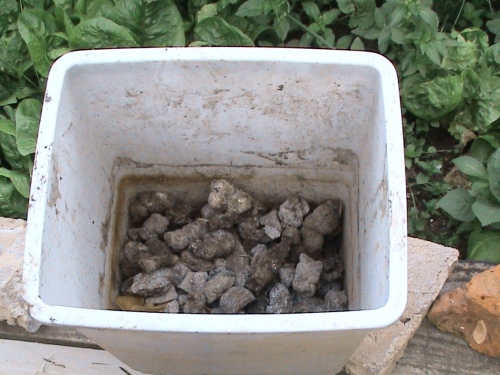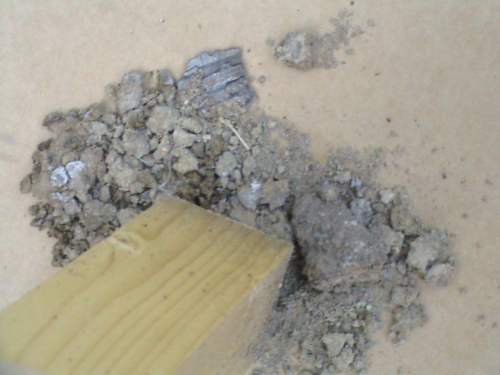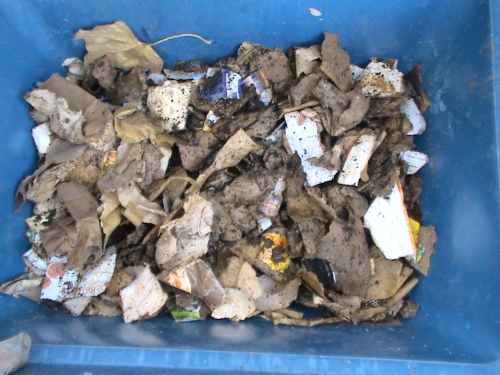Some stories being with ”Are you sitting comfortably?”. I think I should begin this post by asking ”Are you eating?” because if you are, or you just have, you might want to put that sanswich down or come back to this post a bit later!
Ok, we’ll begin.
Most owners of the UK’s 8 million dogs act responsibly and clean up after their canine pals but it’s the minority that don’t that create an almost unique public nuisance that is as dangerous and it is unpleasant.
Contact with dog faeces can lead to infections by not very nice bacteria, parasites and pathogens such as toxocariasis with some very unpleasant consequences, particularly for young children.
Recently Keep Britain Tidy ran a very successful campaign of raising awareness of the dog fouling issue.
Apart from anything else, it’s costing your local council a fortune to deal with this public nuiscance – money they could be spending on essential services.
Bag It and Bin It was the slogan of the Keep Britain Tidy Campaign – I think they should have said Bag It and Worm Bin It 🙂
That’s right! I collect the dog and fox poo our canine and Vulpes vulpes friends leave in the back garden and using worms, turn it into a rich vermicompost that feeds the non edible plants and bushes we have growing in the garden.
The bolded part above is very important, and I’ll come back to some basic precautions everyone should be aware of when handling and composting dog and fox poo.
But for now, put down that sandwich, and read on with awe to see how the humble worm can turn a digusting public menace into a valuable rich compost. 🙂
Locate and collect your dog (and in my case fox) poo.
Store your dog poo in a suitable container until it dries out. How long this takes will depend on the diet of your dog. We feed ours Iams and the amount of egesta is minimal. If you feed your dog a tinned diet and the poo is very loose it may need something mixed with it such as wood shavings to bulk it up and help dry it out more quickly.
When the poo is dried out, get out your Poo Crushing Stick of Doom!
On a large piece of cardboard, crush the poo into smaller crumbly pieces. It doesn’t have to be as fine as dust but the finer the poo can be crushed the better.
Crushing on a piece of cardboard makes it easier for all the small pieces to be loaded into the worm bin.
When the poo looks like the above it’s ready to be added to the worm bin.
Here’s a new poo bin I’ve just set up. The bedding for the worms is ripped cardboard, soaked for two days in the water barrel, with some crushed egg shells for grit and a handful of the finished vermicompost from the old poo bin to kick start the microbes in the new bin.
It’s very important to remember not to add anything else to the poo bin other than poo, and the occasional sprinkle of crushed egg shells.
Cover the poo with bedding and continue to feed as you would a normal bin, checking to make sure most if not all of the last feeding of poo has been processed before adding more poo. Feed in different areas of the bin each time and make sure the dried out powdered poo is well covered and then just leave the worms to get on with converting what started out as a public nuisance and health risk into a lovely, dark, rich vermicompost.
Here’s my old poo bin ready for harvesting.
Some considerations when processing dog and fox poo:
* Because of their diet dog and fox poo contains micro – organisms and pathogens not commonly found in the poo of herbivores, cows and horses for example, so extra care must be taken when handling these waste products.
* Exercise normal hygiene practices – wash your hands thoroughly, always wear gloves, avoid handling the dog poo directly even with gloves on, wear gloves at all times when harvesting the vermicompost and keep all gloves and tools used for the poo bin seperate to all your other gloves and tools.
* Hot composting, something like 70 degree C over 3 to 5 days, will kill most if not all pathogens in the dog poo but worm composting never gets that hot! (or it would cook your worms!) There is research out there that suggests the very nature of how the worms process the faeces renders the pathogens harmless, but this is not wholly agreed by all so it’s wise I think, when the dog poo vermicompost is harvested, to set it aside for 12 – 18 months before using it (any not very nice pathogens with a major PR problem will be long gone after a further 12 – 18 months of the compost maturing) and then only use the finished product on non edible plants, shrubs and bushes and away from your vegetable plots and flowers.
* Alternatively, if you do have an effective hot composting bin going, you could add the finished vermicompost to this so it’ll get exposed to the much higher temperatures and then just harvest and use with your normal compost.
* Don’t mix your food scraps in with the dog poo. Keep the dog poo bin exclusively for dog poo. This is because if you mix with other food scraps, these scraps can provide an environment for the nasty pathogens to flurish to such an extent that the worms simply can’t keep up with processing them through their gut and you will end up with a bin you might as well rename Salmonella City.
Feeding just dog poo and nothing else, the worms will adapt to their bedding and food source very quickly and process it without any difficulty.
* A word about worming tablets – every 3 months you’re going to be worming your dog, right? I’ve read in various places this can be a concern for people who worry about losing their worm herd due to the effects of the medication in the egesta. I’ve never found this to be a problem with the system I use of ~ collecting ~ storing ~ drying ~ then feeding. Perhaps the time elapsed ensures any medication that would be harmful to the worms is long rendered ineffective but it’s not something I’ve ever experienced any problems with. I have at times even thrown the poo directly into the bin with no ill effects. The same caution about worming is raised if you’re using horse manure as bedding in your worm bins, but again, I’ve never had a problem because I use well aged manure from the local stables.
* Keep the dog poo worm bin away from your other worm and compost bins and make sure it has a secure lid if there’s a possibility of other animals or young children getting into it!
Now all this might sound like a bit of a faff but it’s just good practice and common sense and in reality it adds no hardship to the composting process. Think about making a cup of tea. You just get up and do it, right. But if you broke it up into it’s constituent stages and wrote them down for someone to follow, they’d probably give up, prefering to put up with the thirst than wade through a 200 point process! (1. Decide you want a cup of tea. 2. Stand up. 3. Turn towards the room door. 4. Walk towards the door. 5. Place hand on door handle 6. Rotate door handle. 7. Pull door inwards such that it opens. 8. Walk out through the door …… and we haven’t even got near the kettle yet)!!!!
So don’t let that put you off.
Composting your dog waste is easy with worms and you will have the satisfaction of knowing not only are you now no longer contributing your pet waste in it’s bag to landfill, or an incinerator but you’re actually turning it into a very valuable rich compost that will benefit your non edible plants, bushes and trees.
Remember, worms have been composting the poo from the ancestors to the domestic dog for hundreds of thousands of years. They just did it out in the wild, not in a box!
This might seem like a new fangled idea to us, but to the worms, it’s just another day at the office, doing what they do best – taking waste and turning it into the best soil amendment and conditioner known to mankind.
Londonworms












[…] From Dog Poo to Quality Vermicompost with the Turn of a Worm! (londonworms.wordpress.com) […]
[…] owners can already turn their pet’s waste into a resource within their own home. The website London Worms explains how you can turn your dog’s poo into rich and useful vermicompost, although it warns […]
That’s great to hear. Except for the non edible tree part. I spread some compost out that was mostly weeds, chicken bedding, and leaves, but contained a couple of dead birds and squirrels, as well as whatever dog waste was in the yard at time of raking. It was in the compost pile for a year and looked like pretty good soil at the bottom, so I spread it out around our very mature apricot and plum trees on the lawn. How dangerous is this?
Hiya Chris. Probably not very dangerous at all as your compost has been maturing for 12 months or more. When I wrote that article some time ago I was erring on the side of extreme caution. I’ve since been in contact with someone who uses pet and human manure after 12 to 18 months on everything he grows (and eats). When you’re writing for a very broad general audience I think the tendancy is to be very conservative. But I wouldn’t worry if I were you. The longer you can leave the compost with dog waste the better and definitely not shorter than 12 months. But from that point on you should be ok. As I said I was being very cautious and don’t want anyone coming after me with a lawsuit lol. So officially I’m sticking to the advice above but in actuality it should be absolutely fine to use on your plum trees. Enjoy those fruits and thanks for getting in touch.